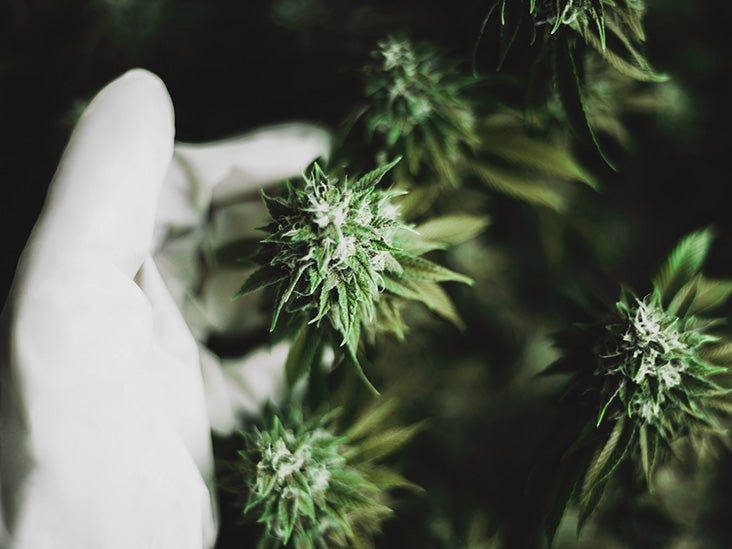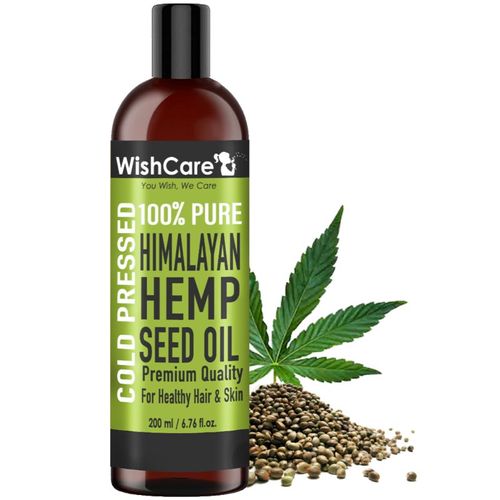
Seizure management with cbd
Cannabidiol (CBD) can reduce the frequency and severity of some types of seizures. It can also improve the effectiveness of antiepileptic medicines. It can be used for a number of seizure disorders like Dravet or Lennox-Gastaut.
Hemp Oil and Seizures
It is a non-psychoactive compound that can be found in cannabis. It is safe, efficient, and has many medical benefits. It is an excellent addition to a treatment program for epilepsy patients, especially those with refractory or severe seizures who have not responded well to other treatments.
Hemp Oil and Seizures
While CBD may help with seizures for some people, CBD does not treat the underlying cause of the condition. It is best for those with a known diagnosis of seizure disorder to use a neurologist's supervision in evaluating the use of this medicine.
Oil for Epilepsy
If you have seizures and are trying to control them, it is essential to talk with your doctor about a possible medication to help you. Your doctor can recommend the right dose for you, and also explain how it interacts to other medications.

The most effective and reliable way to use CBD for seizures is to take a prescription-only product that is regulated by the FDA. This will ensure that you receive the correct amount of CBD as well as that it is freed from heavy metals.
Some states permit the purchase of medical cannabis products containing CBD or THC over-the counter. These products are not regulated by FDA. It is important to ensure that you only purchase quality products.
Cannabidiol, a chemical found naturally in cannabis plants and used in marijuana extracts and other cannabis-related medicines, is important. Research has shown that this compound can reduce seizures in people suffering from severe, difficult-to-control epilepsy.
It is also a promising treatment option for those with rare forms or epilepsy. It has been proven to be effective in reducing seizures in certain conditions like CDKL5 deficiency syndrome and Aicardi syndrome.
However, CBD use for this purpose is still in its infancy. Further research is needed in order to understand the mechanism.

Oil for Epilepsy
Multiple CBD-rich marijuana strains have been proven effective in controlling seizures in people and animals suffering from epilepsy. Charlotte's Web is a cannabis strain that has been known for its ability to reduce seizures in children and adults with epilepsy.
One study compared CBD with a placebo to treat epilepsy in children with severe seizures. It was found that CBD with a higher concentration had better results.
AKC Canine Health Foundation supports a clinical trial that will test CBD's efficacy in dogs with refractory epilepsy. The AKCCHF is accepting tax-deductible donations from dog owners to support this research.
FAQ
Does CBD have a future?
Yes. However, it is not because of its medical benefits. Its ability to make people feel better without feeling high is what makes it so attractive.
It's a good alternative to prescription drug because you won't feel any different from when you take it.
There is ample evidence to support the claims that cannabis can relieve pain, anxiety, depression, insomnia, among other conditions.
Cannabinoids found in cannabis also interact with the receptors in our brains. This interaction can produce feelings of relaxation, well-being, and even a sense of well-being.
You should understand the effects of CBD oil on your body and health if you are considering using it.
Is the CBD industry saturated?
CBD is growing at a rate of more than 25% per year. This growth is expected to continue for at least another five years. In fact, the industry is projected to grow from $2 billion today to $5 billion by 2020.
The CBD market is currently dominated by two companies - GW Pharmaceuticals and Canndoc Ltd. Both companies have a focus on creating pharmaceutical-grade products. However, they have not been very successful thus far. Both are struggling to get traction on market.
Cannabidiol is an extract of cannabis with less than 0.3% CBD. It doesn't produce any psychoactive effects. It is used for treating epilepsy and other medical conditions. It is also used frequently as a dietary addition.
There are many kinds of CBD products. Some CBD products contain whole plant extracts. Others use CBD-rich cannabinoids.
These products share one common feature: they all contain low levels of THC.
They are thus legal under US federal legislation. You still need to comply with local laws when you sell CBD products. You should always check with your state's regulations regarding the sales of CBD products.
Additionally, CBD products can be illegal in several states. These include California, Colorado, Florida, Mississippi, Missouri, New York, North Carolina, Ohio, Oklahoma, Oregon, Pennsylvania, Rhode Island, South Dakota, Texas, Utah, Virginia, Washington, and Wisconsin.
CBD products shouldn't be used if you live in any of these states.
Which states have the highest CBD intake?
California, Colorado and Oregon are the top three states. These states have high populations, high incomes, low unemployment, and large populations. These states also have higher amounts of hemp farms than other States.
California is leading the way, as its economy is heavily dependent upon agriculture. It produces the majority of the nation’s fruits and veggies. This makes sense since cannabis is derived from the same plant as hemp.
Colorado and Oregon follow close behind because they both produce marijuana for medical purposes. California is the only state that allows recreational marijuana use, but these two states are not.
Other states that rank high include Washington, New York. Florida, Illinois. Pennsylvania. Mississippi.
How can CBD products be successfully promoted by companies in a regulatory-compliant way?
The FDA does not regulate hemp for its agricultural commodities. The Controlled Substances Act regulates other cannabis derivatives (e.g. pot). CBD has yet to be subject to specific regulations.
CBD is legal at the state level in 29 states, but federal law still considers it illegal. Businesses looking to sell CBD products are left in uncertainty.
The FDA also maintains strict guidelines on how CBD products may be marketed. For example, they must clearly disclose any product's THC content. Companies cannot claim that CBD helps treat certain medical conditions without scientific evidence to support this assertion.
In addition, the FDA requires manufacturers to submit detailed information regarding manufacturing practices and quality control measures. To prove safety and effectiveness, they require that companies conduct clinical trials.
These are important considerations for companies when creating their marketing strategies.
How much CBD should I use?
The type of product you are buying will determine how much dosing is required.
Most CBD oils come in strengths ranging from 100mg to 1,000mg per bottle.
Some CBD products come in specific doses such as 25mg 50mg and 75mg.
Charlotte's Web, for example, makes CBD products that contain precise amounts of CBD.
If you're unsure about CBD's effectiveness for you, you can try a lower dose.
You can always go higher later.
Is CBD a good idea to invest in?
As hemp-based products gain popularity, so does the market. It's estimated that by 2022 there could be $1 billion worth of hemp-based products on store shelves.
The market is also expected to continue growing at an annual rate of over 20% until 2020, when it reaches $2.5 billion.
Hemp oil is used in many beauty- and health-care products like lotions.
A number of companies produce CBD-infused beverages, pet foods, dog treats, snacks, and other food items.
CBD is currently legal in all 50 states, although this may change soon. CBD will become more widely used as a legal substance in the future. This will allow businesses to be more legally able to do business.
These are just a few of the many reasons CBD investment can be lucrative.
Statistics
- While the primary injury may not be treatable, interventions that attenuate secondary sequelae are likely to be of benefit [203].Only one study (ncbi.nlm.nih.gov)
- however, one study also found that these effects were virtually abolished when the original media (a nutrient broth agar) was replaced with one containing 5% blood (increasing the minimum concentration to ~160 μM CBD) [179]. (ncbi.nlm.nih.gov)
- As a substance that was federally illegal before the passage of the 2018 Farm Bill, hemp-derived cannabinoids with no more than 0.3% THC still face a regulatory grey area. (forbes.com)
- The inhibition of FAAH is predicted to lead to an increase in brain and plasma concentrations of AEA, which acts as a partial agonist at CB1R and CB2R, thereby increasing endocannabinoid tone [92, 110]. (ncbi.nlm.nih.gov)
- A recent systematic review of human trials also reported that individuals with epilepsy receiving CBD (5–20 mg·kg−1·day−1) were more likely to experience decreased appetite than those receiving placebo (i.e., ~20 vs. 5% of patients) (ncbi.nlm.nih.gov)
External Links
How To
How to get certified for selling CBD products
CBD (cannabidiol) is one of the hundreds of cannabinoids found in cannabis plants. It has been used medicinally throughout history. This includes in South America, China, India and China. Due to its ability treat conditions like anxiety and pain, epilepsy, inflammation, and other ailments, it has become increasingly popular. However, CBD products cannot be sold by anyone unless they are certified by the U.S. This means that any person who wants to sell CBD products must use the "unofficial" process called self-certification.
There are two ways to go about this. The first way is to join an association of local cannabusiness owners. This allows you to network with other owners and get advice and support. There are many associations in the country. Another option is to go online. Many states allow canna businesses to operate online. If so, then you can set up your own website and begin taking orders right away. But, you still need to register with your state's Department of Public Health. Once you've registered, you'll be able to apply for a license through your state's department of public health. Once you have received your license you are officially authorized to open your store, accept orders, and close it.